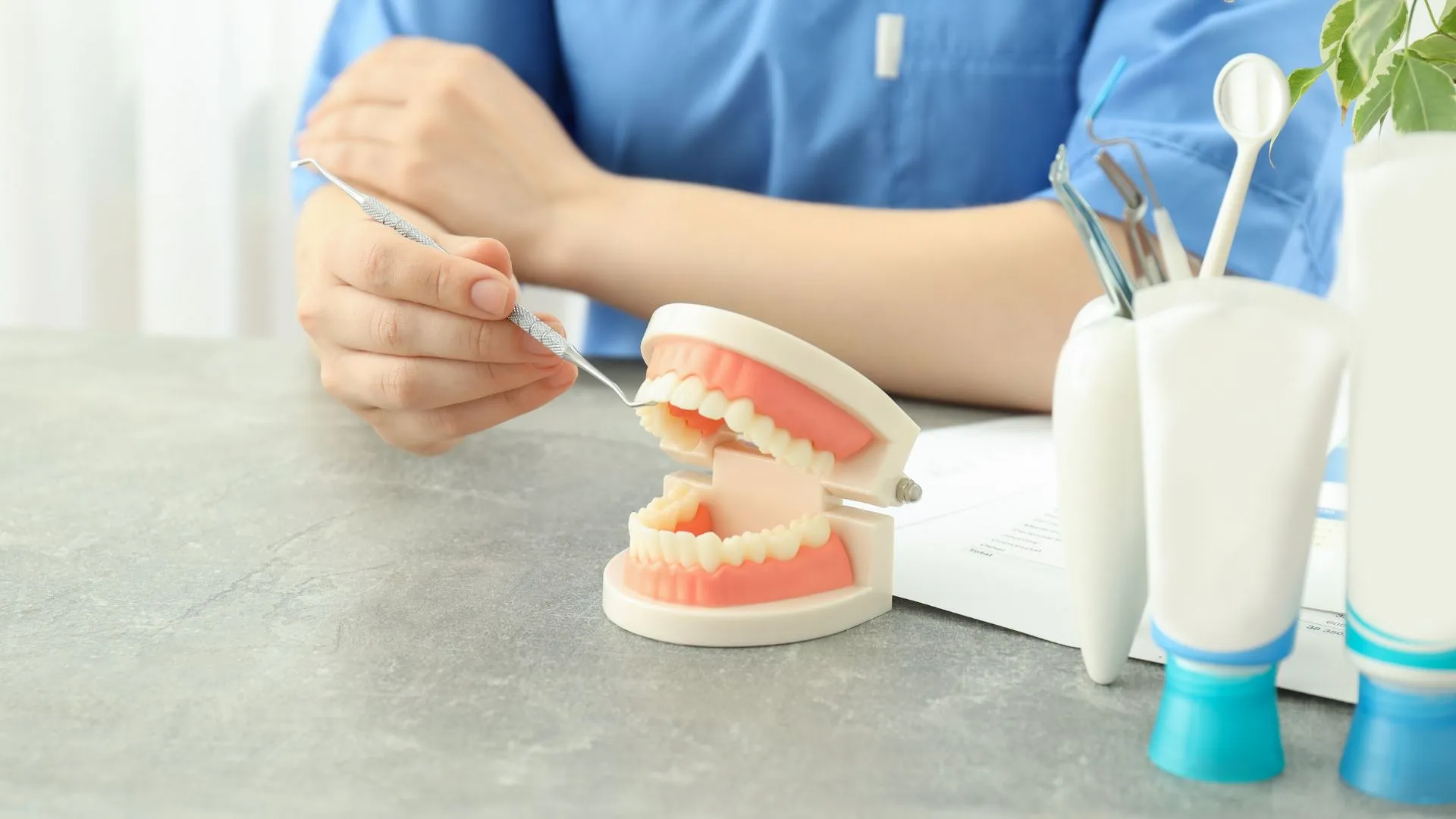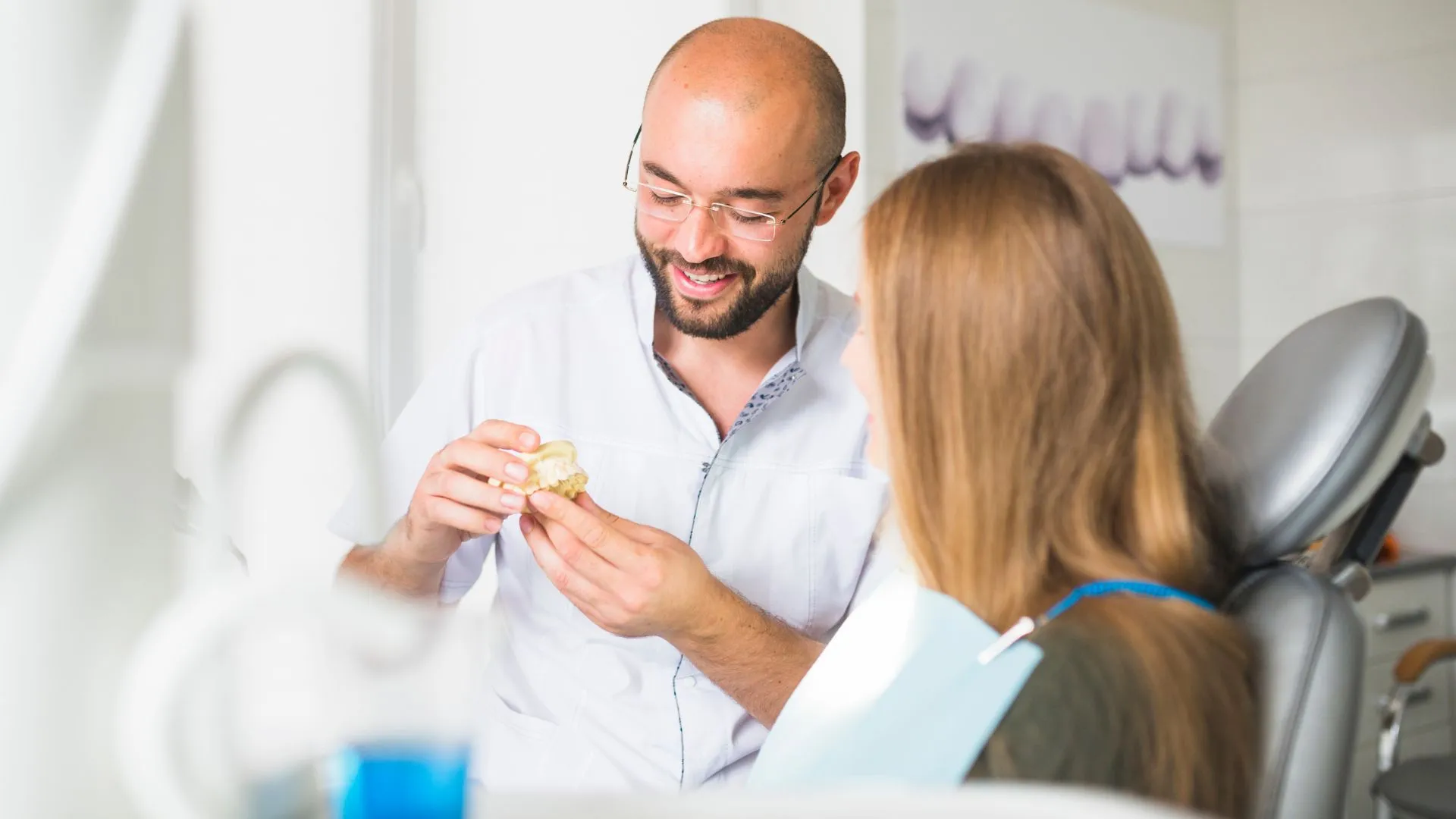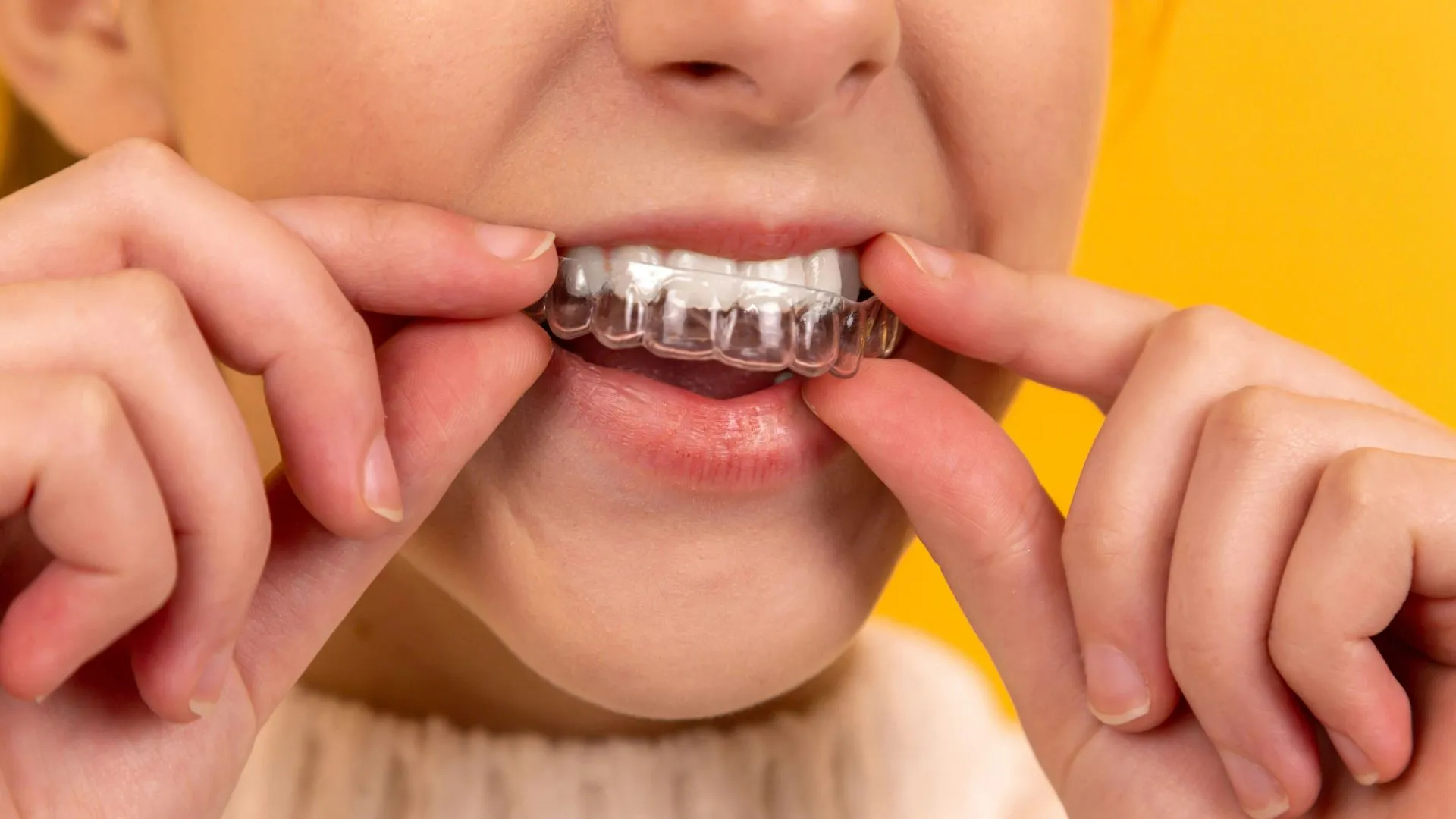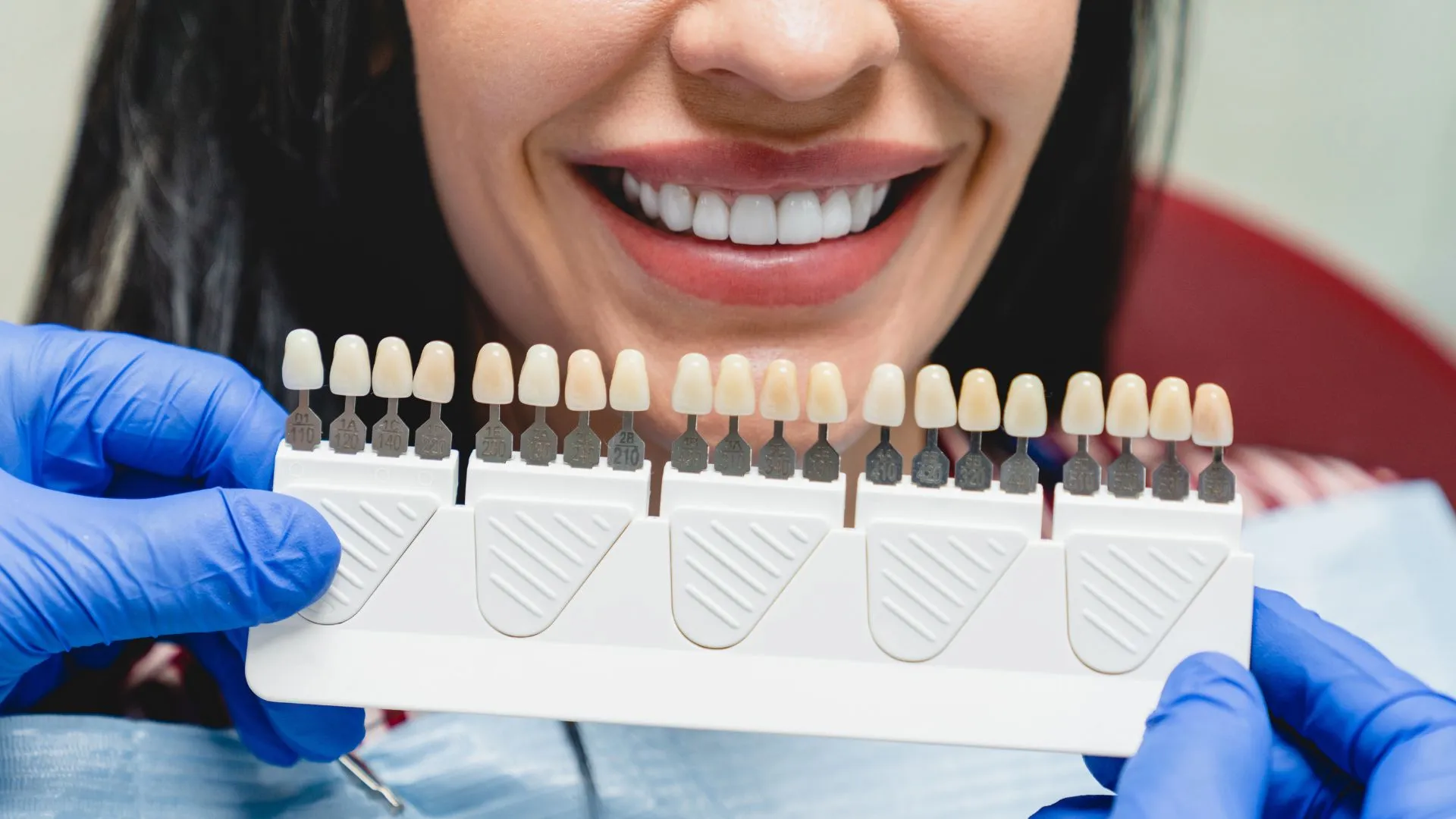When brushing twice a day and flossing doesn’t help mend your yellow teeth, it’s time to contemplate other options. Teeth become yellow due to stains – both deep and surface-level including other reasons that occasionally aren’t under our control.
When brushing twice a day and flossing doesn’t help mend your yellow teeth, it’s time to contemplate other options. Teeth become yellow due to stains – both deep and surface-level including other reasons that occasionally aren’t under our control. In the following article by WebMD, the reasons behind the staining of the teeth both naturally and artificially are particularized.
Dental health and tooth discoloration
There are several causes of tooth discoloration, including:
- Foods/drinks – Coffee , tea, colas, wines, and certain fruits and vegetables (for examples,apples and potatoes) can stain your teeth.
- Tobacco use – Smoking or chewing tobacco can stain teeth.
- Poor dental hygiene – Inadequate brushing, flossing, and rinsing with an antiseptic mouthwash to remove plaque and stain-producing substances like coffee and tobacco can cause tooth discoloration.
- Disease – Several diseases that affect enamel (the hard surface of the teeth) and dentin (the underlying material under enamel) can lead to tooth discoloration. Treatments for certain conditions can also affect tooth color. For example, head and neck radiation and chemotherapy can cause teeth discoloration.
- Medications – The antibiotics tetracycline and doxycycline are known to discolor teeth when given to children whose teeth are still developing (before age 8). Mouth rinses and washes containing chlorhexidine and cetylpyridinium chloride can also stain teeth. Antihistamines (like Benadryl), antipsychotic drugs, and drugs for high blood pressure also cause teeth discoloration.
- Advancing age – As you age, the outer layer of enamel on your teeth gets worn away, revealing the natural yellow color of dentin.
- Genetics – Some people have naturally brighter or thicker enamel than others.
- Environment – Excessive fluoride either from environmental sources (naturally high fluoride levels in water) or from excessive use (fluoride applications, rinses, toothpaste and fluoride supplements taken by mouth) can cause teeth discoloration.
- Trauma – For example, damage from a fall can disturb enamel formation in young children whose teeth are still developing. Trauma can also cause discoloration to adult teeth.
Now the article enlightens us about how to avoid the yellowing of our teeth. There are basic methods that we can apply in our daily life to reduce the pace of the staining of teeth naturally.
2 simple ways to prevent yellow teeth
You might be tempted, after reading about how staining and acidic to your teeth some of your favorite foods and drinks can be, to reach for your toothbrush straight after eating them. That would be a mistake.
Dental enamel actually becomes softer after eating one of these foods or drinking one of these drinks for at least half an hour afterwards. Brushing during this time may actually make things worse by wearing away the weakened enamel.
Fortunately it should harden again within the hour so you can brush your teeth with a soft bristled toothbrush then if you like. A better way is to remember to do 2 simple things after eating or drinking any of the suspects on the list above.
The first is to have a big sip of water after you’ve finished your meal or drink and swirl it around your mouth to clear away any acids or staining compounds. Just remembering this alone can make a big difference to how white your teeth stay.
The second is to actively try and get more saliva into your mouth after eating and let it move over your teeth. It’s easy to do after a sip of water and saliva is your mouth’s natural defense against enamel erosion, staining and cavities.
You’ve probably heard of chewing sugar-free gum after a meal for the same reason, but it isn’t needed (most sugar-free gum contains potentially dangerous aspartame so it’s best avoided). As long as you swirled water around first, you should be easily able to build up a little extra saliva and do the same again with it.
Before long this will become a habit that will keep your teeth strong, white and protected, even if you eat and drink some of the things on the list fairly often.
Now, you have learned few ways to save your teeth from losing their shine. The following article provides us with the solution for stained teeth
Teeth Whitening
- In-office Whitening – In-office bleaching provides the quickest way to whiten teeth. With in-office bleaching, the whitening product is applied directly to the teeth. These products can be used in combination with heat, a special light, or a laser. Results are seen in only one, 30- to 60-minute treatment.
- Tray-based tooth whiteners – Tray-based tooth whitening systems, purchased either over-the-counter or from a dentist, involve filling a mouth guard-like tray with a gel whitening solution — which contains a peroxide-bleaching agent. The tray is worn for a period of time, generally from a couple of hours a day to every day during the night for up to four weeks and even longer (depending on the degree of discoloration and desired level of whitening).
In the next article, Jenny Green explains to us the ways of keeping the brightness of your teeth intact in case you have gone through the procedures of teeth whitening.
Treating sensitive teeth after teeth whitening
Sometimes after whitening treatments, teeth can be sensitive. If this occurs you have options to reduce the pain.
- Use a sensitivity toothpaste – sensitive toothpastes are formulated with ingredients such as potassium nitrate to relieve the pain associated with tooth sensitivity.
- Chew gum – scientists have found that more saliva is produced when chewing gum. And the act of chewing may distract people from the pain.
- Avoid whitening for a while – give your teeth a break and stop using whitening products.
You are now aware of the details of the staining of teeth and fully capable of prolonging the brightness of your teeth for an extended period of time through natural and synthetic procedures of teeth whitening.



